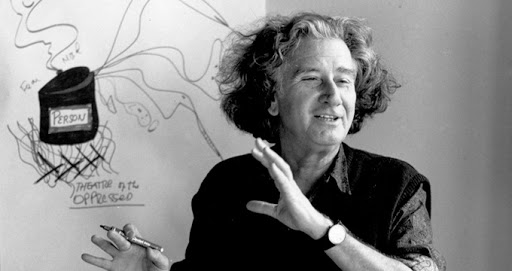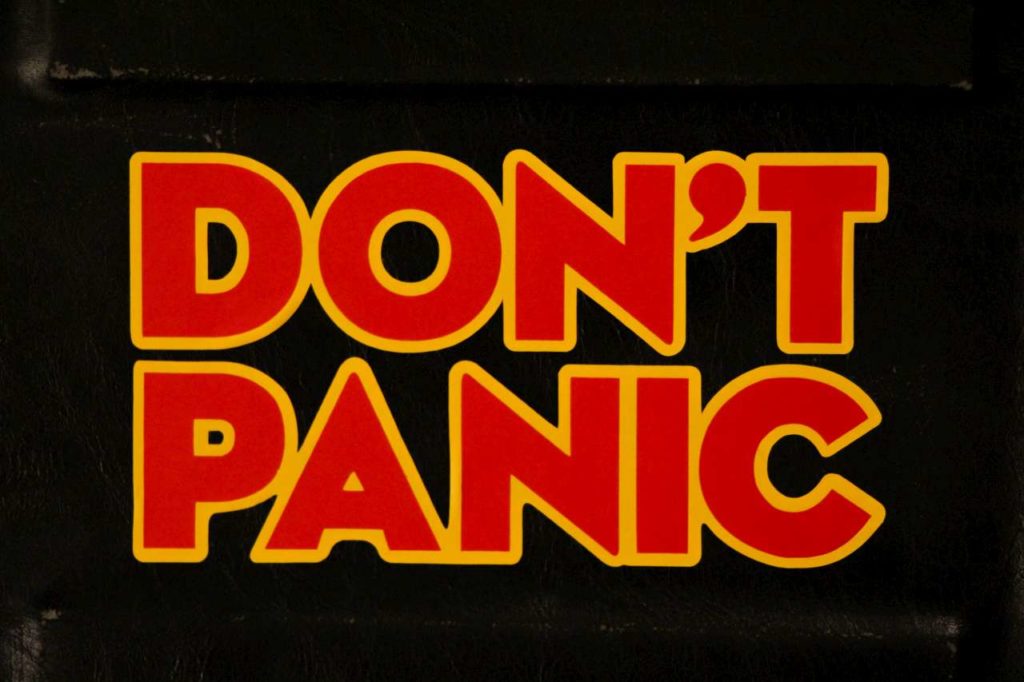Co-production rule #8
Plan proactively, practice reactively
Welcome back. Where were we?
As a confident and well-researched co-production facilitator, you have ensured every single element of the process has been proactive, right up to the moment you picked up the phone and called your first respondent or knocked on their door. You scheduled, rehearsed, prepared…
And now, the unexpected has crashed into your plans, and your co-production aspirations are in a hundred pieces. You weren’t prepared for this.
Don’t worry. This is normal. It’s predictable in its unpredictability. Maybe I should have taken a leaf out of Douglas Adams’ finest work, and put this on the front page…
A little levity at this point is probably warranted. It is completely normal for things to fall apart. It is completely normal for the project to veer off from your stated aims and objectives. It is completely normal for dead-ends and new directions to magically appear.
What the community want may not be remotely in tune with what you thought you’d achieve. You will never be able to control the direction a co-production takes. You are now on the 18.15 express to an unknown destination.
There is no point in trying to steer a train.
You can apply the brakes or accelerate, but the rails are taking you in one direction only, so relax and enjoy the ride.

React and improvise
This is new territory for many people. How you react, and how reactive you are, will determine the success of the engagement. You will have to improvise, think, alter you plans. This may bring you into conflict with your organisation’s management, and will certainly require some delicate negotiations on the possible outputs and outcomes. You may need to notify your funders of variation.
If you have documented your progress, and can demonstrate the reasons for your decisions, you’ll be on safer ground. It won’t be easy, and you may feel deflated, but remind yourself once again… this is not your project. It belongs to the community curators and they are allowed to take the project in any direction they want to.
You should have the professional knowledge to subtly nudge the project’s progress, but it is not within your power to censor or deny the community’s input, and you should not try. And if outside interests attempt to wrest control, then I hope the next page should give you some ammunition and comfort.
Perspectives XI
“Forum theatre is a type of theatre created by the innovative and influential practitioner Augusto Boal, one of the techniques under the umbrella term of Theatre of the Oppressed (TO). This relates to the engagement of spectators influencing and engaging with the performance as both spectators and actors, termed “spect-actors”, with the power to stop and change the performance.”
https://en.wikipedia.org/wiki/Forum_theatre

I wanted to add a few words on Forum theatre into this guide at some point and now seems appropriate. I trained with Hector Aristabel, so I have both an interest, and experience, of this form of theatre performance.
To my mind, it is an analogue of co-production best practice…
Forum theatre begins with a short performance, either rehearsed or improvised, which contains demonstrations of social or political problems. At the conclusion, the play will begin again with the audience being able to replace or add to the characters on stage to present their interventions; alternate solutions to the problems faced.
Your role? Well, you are the joker.
The presentations include one person who acts as the ‘joker’, a facilitator for the forum theatre session. They are to hold an impartial view of the interventions, ask the audience to evaluate what happened at the end of an intervention, facilitate the interventions such that each spect-actor is able to complete their intervention before another is free to enact their intervention, and to be watching out for interventions which are implausible and ask the audience to decide whether the intervention is a ‘magic’ solution.
I think the key things to take away from Forum Theatre are the idea of spect-actors, being your respondents, and the notion of your role being impartial, facilitating the intervention, the conversations but there to guide, not to interfere.
In a perfect world, your impartiality and facilitation would allow the co-production to travel wherever it needed, organically and without interpretation. But we do not live in a perfect world. I’ve asked you to be human quite a few times. And that humanity has some surprising consequences…



